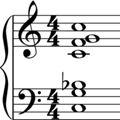ist die folgende Mediation gelungen?:
Hello,
So as we are working on a joint project on unequal distribution of income, I have come upon on an interesting article in the "Stern" magazine. The author Walter Wüllenberg states his profound opinion about the class mobility in Germany and how this has changed in the last years. In the following I will point out the main arguments and their argumentation.
Firstly, the author states, that the German inequality of class is not comparable to the American Class inequality, as the German discussion about class was about the under class and their immobility, whereas the US discussion about class was always accomplished by the prolific idea of the American Dream. This shows in the social spendings of Germany too, spending more than half of the income of the estate, incomparable to the US with only a fifth of theirs.
Henceforth, the author states that the class inequality in Germany much rather shows in the not existing middle class than in the poor estate of the under class. While economy has grown hugely in the last decades, the wages have nearly stagnated, showing that economies growth could not bared by society as a whole but only by the rich. Thus, the rich have gotten immensely richer, owning most of the capital of the country, and the rest just held their class. Yet the divide between the classes has grown and their nearly is no in between. This is worth the criticism because the growth of the economy is due to the work of the society as a whole, yet only few bear the fruits of the hard work, being quite unfair.
I hope that this has helped you and that it may have provoked some thoughts considering inequality. I would like to hear from you.
GaLIGrü,






































